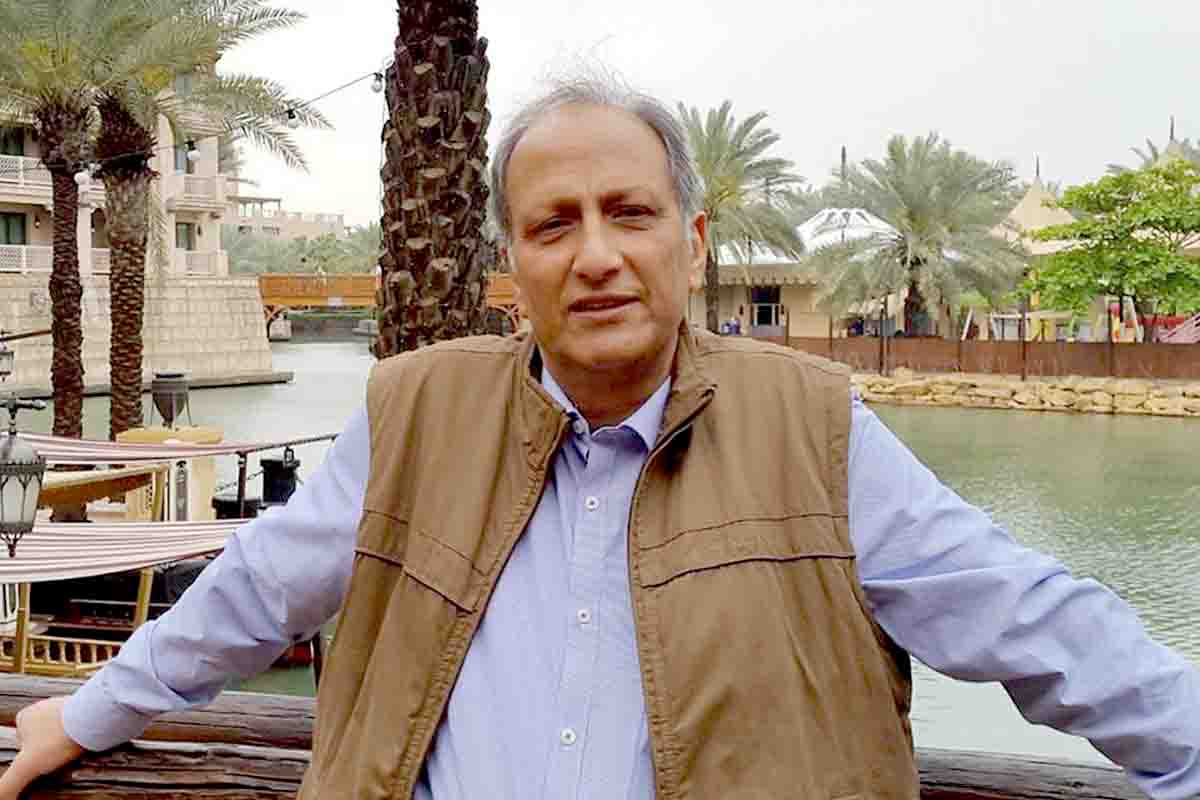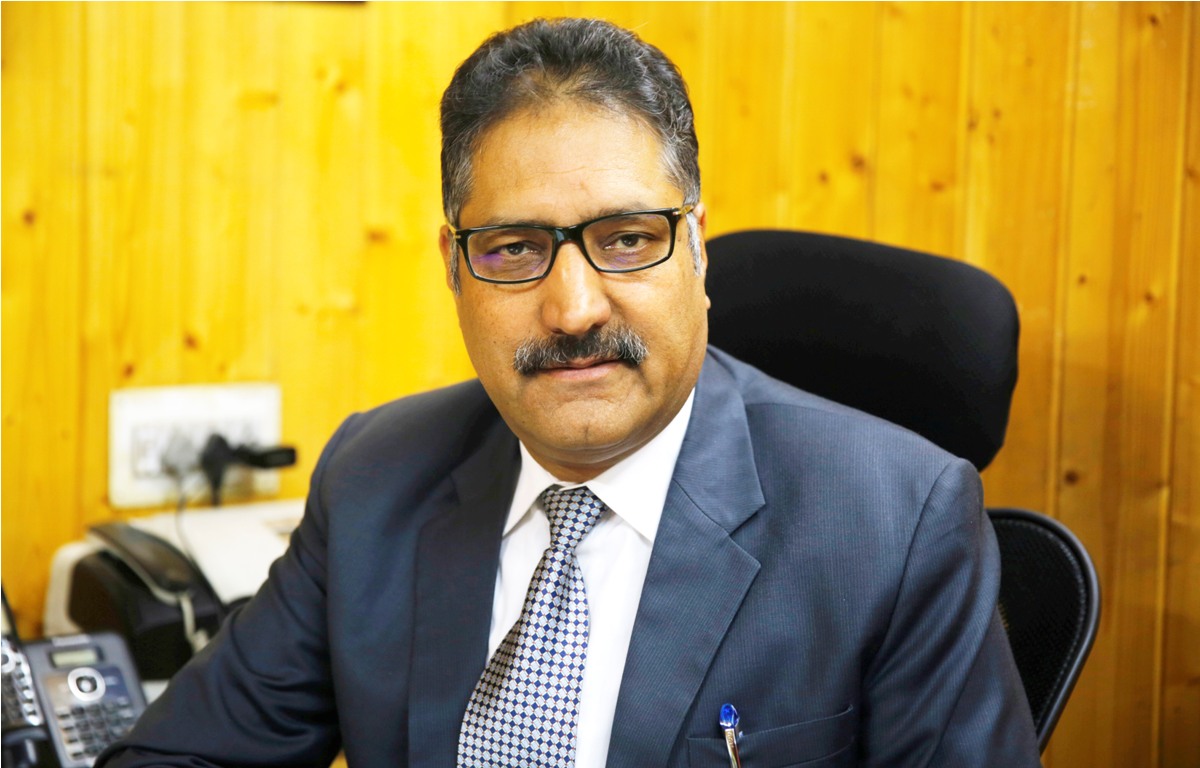Kashmir’s most popular journalist Yusuf Jameel tells Umar Mukhtar

KASHMIR LIFE (KL): What is the difference between the 1990s and 2018 as far as coverage of Kashmir goes?
YOUSUF JAMEEL (YJ): When comparing the two, I think the situation for us has changed a lot. There has been improvement in it in many ways. Earlier we used to work under tremendous pressure from all parties to the conflict on daily basis. Then, I was working with different organisations simultaneously like The Telegraph, Reuters,BBC and Time magazine. Everybody wanted to be on BBC which had a huge listenership. Its news broadcasts were very popular in Kashmir and in other parts of South Asia as it was considered to be unbiased when weighed against official media organisations in our region. So every party was expecting coverage on the BBC justifiably or otherwise. Rather they wanted me to toe their line which was not possible. Also being an international news organisation, the BBC had to split its broadcast time between the happenings and stories unfolding all over the globe, not just Kashmir. There were times when you would receive dozens of statements from different outfits, claims and counterclaims and everyone expecting them to be aired by the BBC. One would work under tremendous pressure. Today, the situation is much better. Largely, there is realisation about the functioning of a news organisation be it a newspaper, radio or TV and understanding about the brief of a reporter.
KL: Were the local media also facing the same pressure? Is this still going on?
YJ: Yes. In fact, they were struggling in worse conditions. At least, I had the excuse that the editorial decisions are taken in London. My job is to file a story; the discretion whether to use it or not and how much of a story should go on air lies with the editors sitting in London. Being editors and owners of their publications, our comrades back home didn’t have this kind of explanation to offer. We have lost 14 to 15 men of our fraternity during all these 30 years, most of them associated with local newspapers and other media organisations. Some of them were killed by militants, some by security forces and other official agencies and others by renegades and the so-called unknown gun. A couple of them fell prey in car bomb blasts or similar incidents.
KL: Reporting a conflict is always challenging. How freely were reporters able to perform their duties?
YJ: Everyone knows about the situation of the 1990s. Then, everybody wished to conquer us; hence would use coercive tactics. Later during the unrests of 2008, 2009, 2010 and 2016, the media was again in real trouble; facing an unofficial censorship. We have seen whenever there is something bad happening around, the authorities impose unofficial censorship. Though there is no official censorship as such and everybody will tell you that media is free here but on ground we have experienced something incongruous to all this.
Every time they face some difficult situation, they create circumstances for reporters and newspapers in which it becomes difficult and, sometimes even impossible, to work. They impose curfews and you are not issued a curfew pass. Even if you get it, the man in uniform on the street refuses to accept and honour it. They also snap internet services frequently. So it becomes impossible for a reporter like me to discharge my professional duties. Newspapers, portals, and everyone else suffers. I see these tactics as unofficial or indirect censorship.
Also, many reporters and photojournalists have been attacked several times by government forces while performing their duties. At least, one photojournalist has suffered vision impairment in the use of pellet shotguns.
KL: What is the role of government while dealing with the journalists who work in a place like Kashmir?
YJ: Reporting in a conflict zone is a most challenging job. It is also fraught with risks. Anything bad or wrong can happen to you at any point in time. The government is supposed to be responsible and expected to ensure and create conditions in which it becomes less difficult for media persons to work. But what we have seen and experienced, it seems the government is creating problems for us than trying to solve any. It turns hostile to media at times apparently because it doesn’t want certain things to come under media glare.
KL: How is the assassination of Shujaat Bukhari going to impact the journalism?
YJ: Shujaat Bukhari’s assassination was brutal, unfortunate and shocking. Everybody condemned it. There are speculations about the motive behind his murder and even some allegations and claims and counterclaims. Many people believe he was targeted because of his activism and not being a journalist. He would give to his readers a quality product-Rising Kashmir. His other publications were equally good and largely unbiased. When at The Hindu, he worked dispassionately. Nevertheless, his killing has instilled a fear and uncertainty in the journalist fraternity.
KL: How was Kashmir’s transition from a no-newsy place to a den of news after the conflict started?
YJ: I started journalism in the late 1970s. I was still a student when I started working with ‘Aftab’– the Srinagar Urdu daily. Then in 1983, I joined the Telegraph and a year later the BBC and Reuters.

Those days not much was happening at my beat. So on a normal day I would work on and file stories on angling, adventure tourism, culture and life of ordinary Kashmiris. And occasionally I used to do political stories as well. But that was not the main story. It was only in 1984 when Farooq Abdullah was toppled and G M Shah was installed as Chief Minister that Kashmir became newsy overnight.
Then in 1989, militancy started and suddenly every other thing took the back seat and we started counting bodies. How and where? What militants have to say and what government and its forces combating insurgency have done or have to share with us? What is happening to non-combatants?
KL: You were intimidated and attacked too……
YJ: I had had six attacks on me and Allah (swt) saved me every time. But the attack carried out on September 7, 1995 was more serious when one of my colleagues Mushtaq Ali was martyred in a parcel bomb explosion that was aimed at me.
Following the attack, I was taken to London by the BBC for treatment to the injuries I had suffered in the explosion and also for “consultations” and “to undergo training”. I was reluctant and unwilling to move out for two reasons. Firstly, I did not want to give chance to the people who were involved in the attack to see me shifted away from my beat after having failed to kill me. Secondly, my parents were in shock and I did not want to leave them in that condition. But the BBC insisted on my relocating to London for some time saying ‘you are in danger in Kashmir’. I stayed there for about six months and was then posted in New Delhi to supplement its news effort out of India. I was, however, debarred from reporting on Kashmir and it is when I smelt a rat. How and why they betrayed me is a different story. Later in 1996, I came back to cover the State Assembly elections.
Those times you had to be very cautious, reporting was like a razor edge walk. There was a militant gun, forces’ gun, Ikhwan gun and the most dangerous ‘unknown’ gun.
KL: How you see the social media where many people act like journalists?
YJ: There are some things which come on social media and you pick up the thread and start working on an interesting or worth reporting story. That way social media for a journalist is good but as a journalist your job is different. You have to be responsible and inquisitive. Every piece of information that’s available on social networking sites can’t be helpful or reliable.















